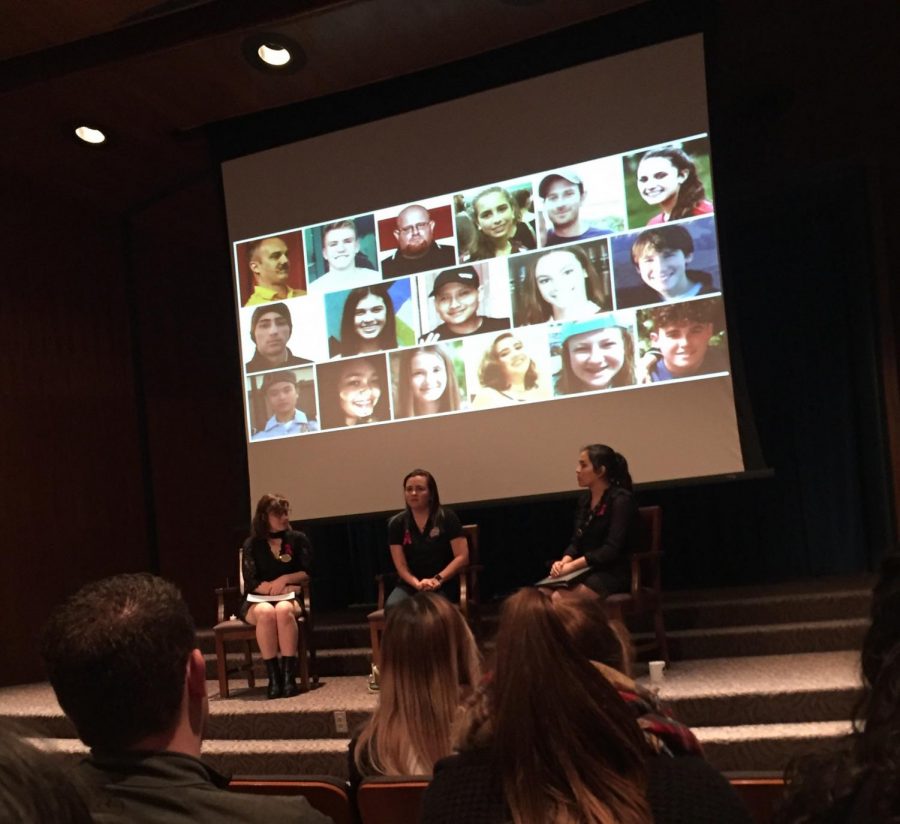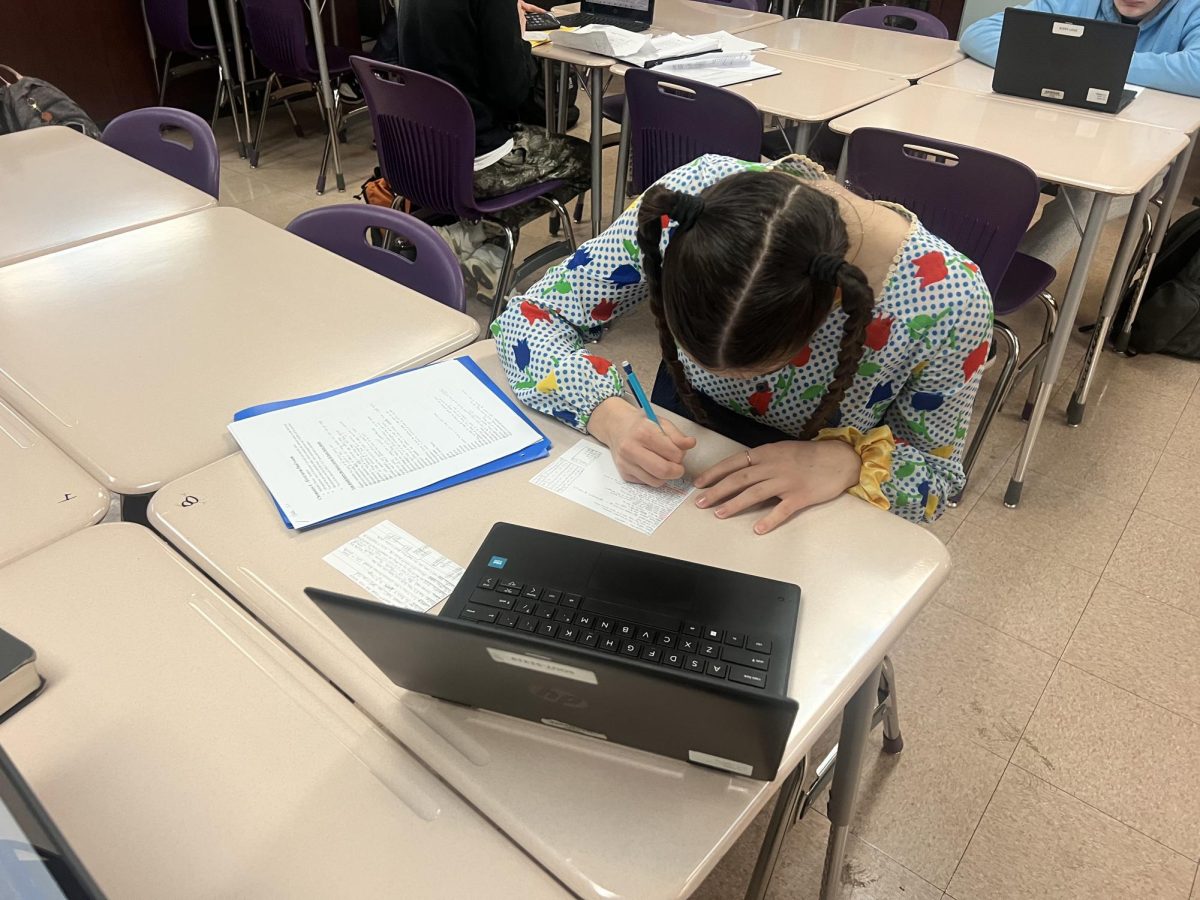A recent New York Times article referred to current secondary school students as the “mass shooting generation.” This generation has been raised with the memory of Columbine, the shock of Sandy Hook, and now the horror of Parkland. We instinctively know what to do when a code red is called. Now, these students are standing up to an inactive government that has avoided passing comprehensive gun control laws, a government that has continually failed to protect them from the all-too-frequent occurrence of school shootings.
As a high school student, it can be difficult to try to effect change. Most of us are not of legal voting age. Our concerns are easily and often trivialized by politicians. However, the new, student-led gun violence movement has potential, and high school students who are concerned about school shootings (which should include all of us, since school shootings are far too real a threat) should participate and strengthen the movement in the many ways we can. So what can we high school students do to foment the growing resistance?
Participate in a walkout: The nationally-organized school walkout days scheduled for March 14 and April 20 conflict with many South students’ plans, as March 14 is during our spring break and April 20 falls on Global Youth Service Day, when many students will either be out of school volunteering or in school taking the ISTEP. Nevertheless, several groups at South, including Community Leadership Building and the South administration, currently have plans in the works for productive ways to reflect upon and support the fight to end school shootings.
Register to vote (for those eligible): One of the most basic and essential ways to participate in government is to cast your vote on election day. Tuesday, May 8 is the day of the 2018 primary election for Indiana, and the general election will be Tuesday, Nov. 6. Keep in mind that as long as you will turn 18 by Nov. 6, you can register to vote and actually vote in the primary even at age 17. Registering to vote can take as little as five minutes: click on this link to get started.
Contact your representatives: Even if you will not be able to vote in the next election, you can call your elected representatives and share your opinions on mass shootings and gun control. Here are the phone numbers of some of the politicians who represent Indiana and the Bloomington area:
- Joe Donnelly (D): (202) 224-4814
- Todd Young (R): (202) 224-5623
- Trey Hollingsworth (R): (202) 225-5315
- Gov. Eric Holcomb (R): 317-232-4567
Attend a march: Students from the Parkland, Fla. shooting organized the March for Our Lives in Washington D.C. for March 24. If Washington D.C. is too far, there is a more local version of the march scheduled for the same day in Indianapolis. Rallying to protest the inaction on gun control legislation can demonstrate to the government that their constituents (peacefully) demand change, and every member of the march counts. If transportation to Indianapolis (or even Washington D.C.) is an issue, social and political groups around Bloomington will be organizing carpools to help get as many protesters as possible out there.
Report suspicious individuals: The perpetrator from Feb. 14’s shooting had been reported many times to local authorities and even to the FBI, but unfortunately that had little impact on preventing the horrific shooting from occurring. Nevertheless, don’t let this unsettling fact deter you from telling a guidance counselor or teacher (or even local law enforcement) if you notice someone who seems violent or who has demonstrated erratic behavior. Although gun control is the primary and more controllable issue in the mass shooting debate, there is a mental health component involved as well.
After the recent Parkland school shooting, which left 17 students and staff members dead, there was much of the usual passivity: the ineffectual “thoughts and prayers” offered by politicians, the pleas not to politicize the tragedy by making it about gun control (even though it definitely is a gun control issue, as the 19-year-old shooter legally obtained an especially lethal assault rifle). Many feared that, as with other mass shootings, the media coverage of Parkland would fade out after a few days and people would forget about the debate…until the next shooting inevitably occurred months or even weeks later.
However, people have noted that the dialogue feels different this time. Indeed, there is one difference to point towards: while numerous politicians around the country (such as Speaker of the House Paul Ryan) said not to make the school shooting into a gun control issue, the very students at Marjory Stoneman Douglas (MSD) High School in Parkland insisted that, in fact, they did want to politicize the horrific event and use it as a platform for why the United States should have better gun control laws, such as more comprehensive background checks and bans on assault rifles and other automatic and semi-automatic weapons—modest measures that plenty of Republicans and gun owners support.
Somewhat surprisingly, more than a week later, the Parkland shooting remains a prominent story in the news media. In the week that the MSD students had off while the school was closed, they traveled to the Florida state legislature to sit in and express their disapproval about a vote not to debate an assault weapons ban. They appeared on talk shows and planned rallies and marches for students and teachers all over the country. In short, they ignited a long-needed movement to eradicate mass shootings, especially in schools.
Other high school students have been receptive to this new movement. Around the United States, there have been walkouts and peaceful protests towards the government in an attempt to convince state and national governments to pass measures preventing future gun violence. Furthermore, many universities around the country have stated that, if students are punished by their schools for participating in peaceful protest, it will not affect the students’ offers of admission, encouraging participation in the movement from many teenagers.
As part of these national efforts, MSD english teacher and Indiana University alumna Katherine Posada came to Bloomington on Feb. 24 to speak about her experience in the shooting and to share her insight on how to prevent gun violence in the future. When asked about what students can do to positively contribute to the movement to end gun violence, she reminded the audience that elected representatives work for their constituents.
“Vote. Use the power that you have to stand up for what you believe in,” Posada said.
If you will be 18 by Nov. 6, 2018, then it is up to you to vote. Even if you cannot vote in this election, remember that there is rarely instant gratification for social movements like these (As an example, it took almost 100 years for American women to win the right to vote, which they received only in 1920). Do not be discouraged, speak your mind in the platforms available to you and be ready to engage civically by voting once you turn 18.


